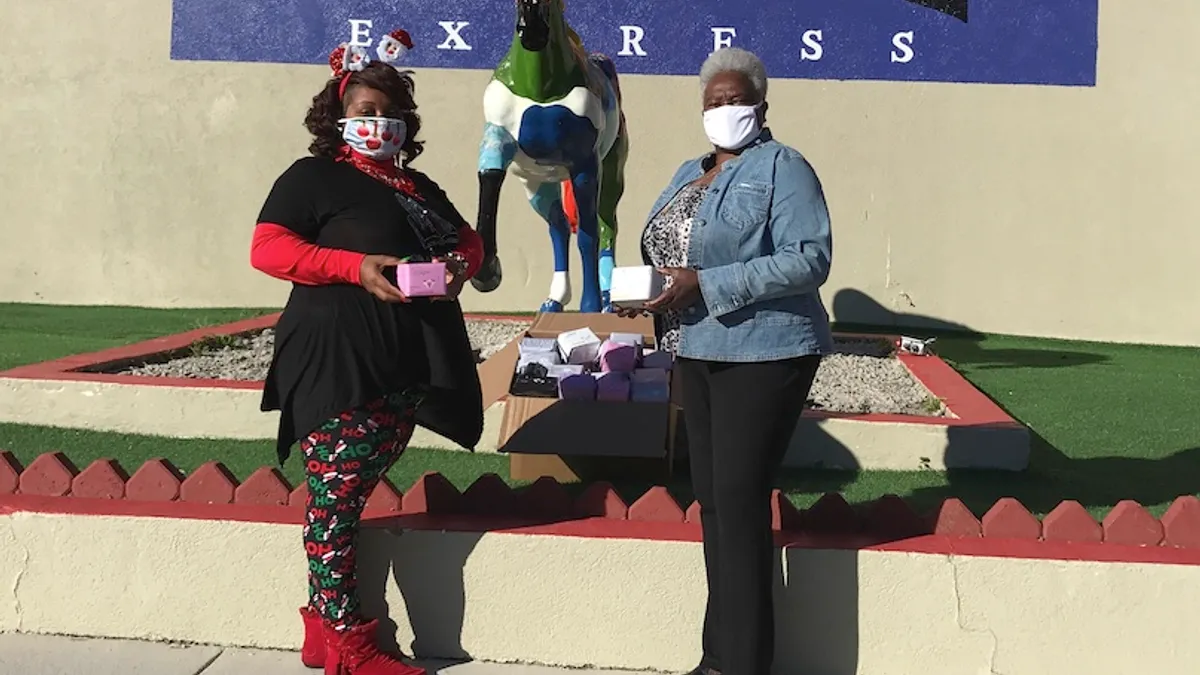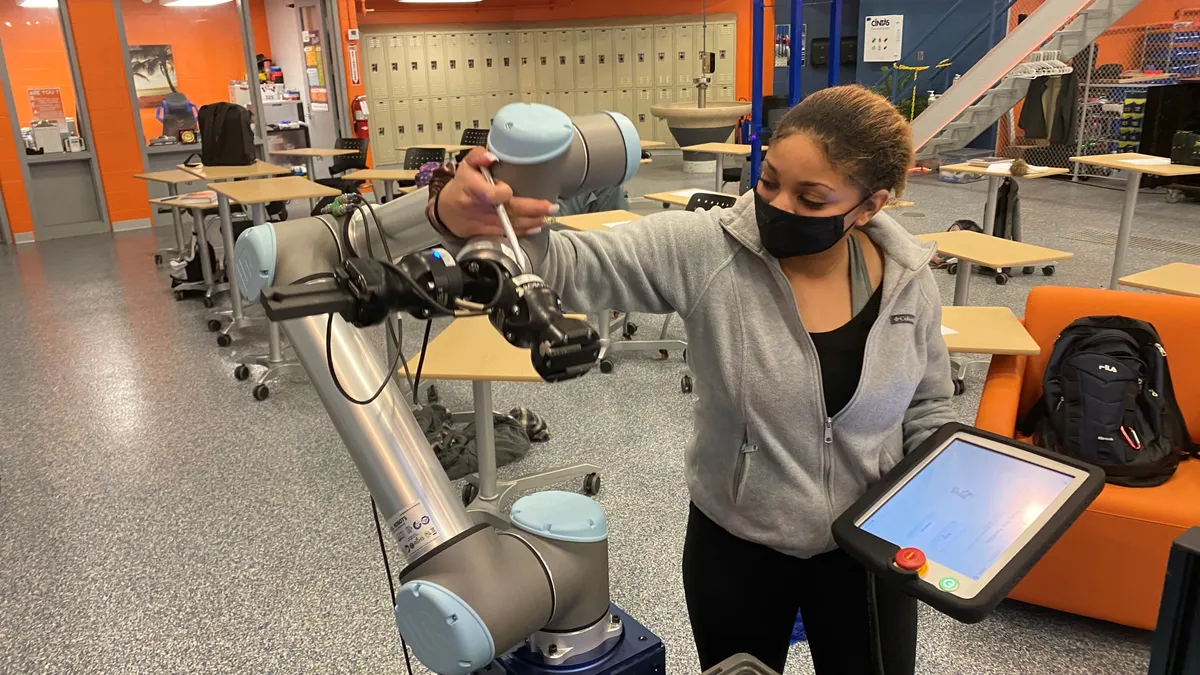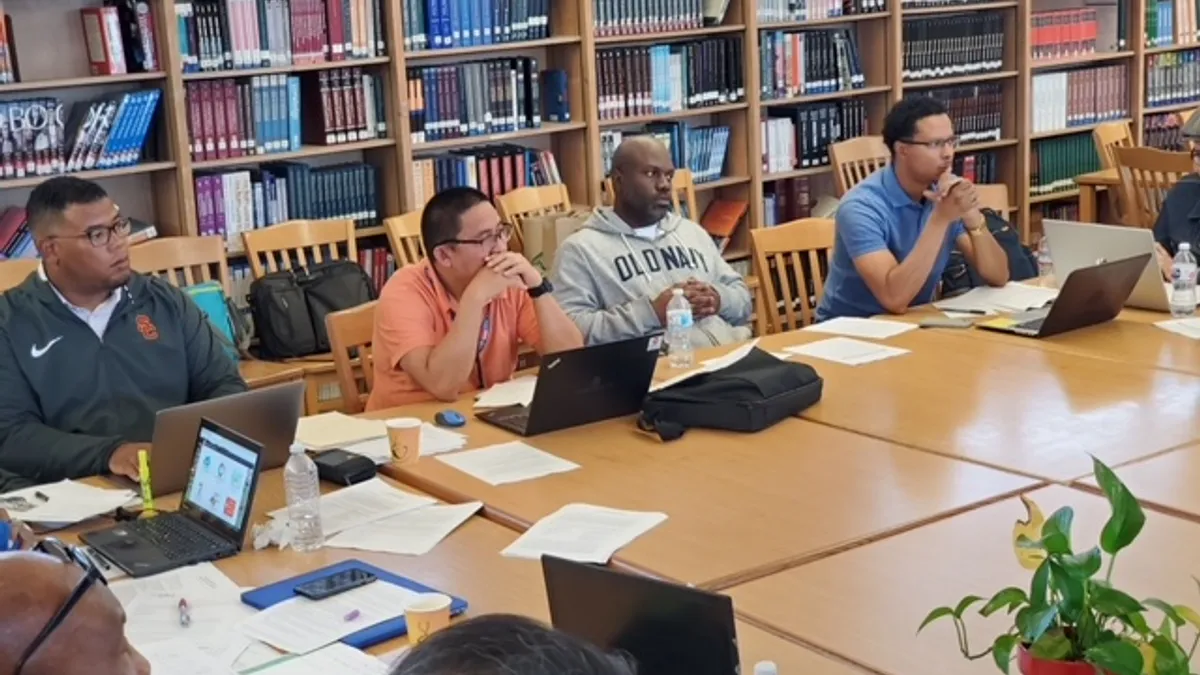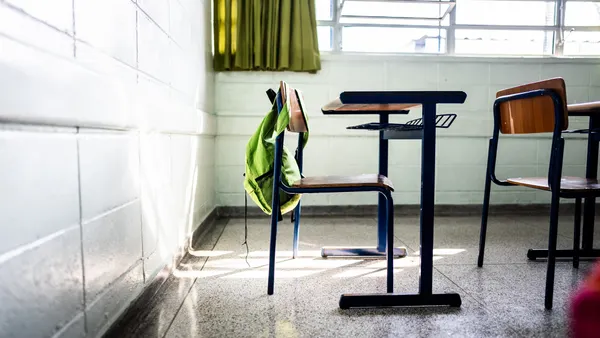The region: The Chattahoochee-Flint Regional Education Service Agency supports 15 school districts in southwest Georgia. One of the districts served by the Chattahoochee-Flint RESA — Macon County School System in Oglethorpe, Georgia — is a small, rural district with three schools and 1,200 students.
The challenge: Macon County School System’s elementary, middle and high schools struggled with low academic performance and high absenteeism rates, which contributed to the district’s elementary and middle schools being identified for Comprehensive Support and Improvement and Targeted Support and Improvement in 2018 by the Georgia Department of Education. Schools identified for CSI and TSI rank among the lowest 5% of Title I schools statewide, according to the Georgia DOE website.
That identification status allowed the school system to voluntarily receive targeted support from Chattahoochee-Flint RESA and its wraparound services coordinator, Shonda Green.
Green, a former teacher and principal, knew the academic and attendance statuses needed support from community partners, but she and the school district first had to understand the root causes to these challenges.
“It’s helping schools to identify what some of those non-academic problems are that are causing their students to not perform at their greatest potential in the classroom,” Green said.
The approach: Green worked with the school district’s parent engagement coordinator, Verneda Johnson, and Macon County Family Connection Program Coordinator Nicole Howell to survey students about what they thought were nonacademic barriers for attendance and learning. The survey results showed students’ biggest concerns centered on personal hygiene and food insecurities.
Targeting those needs, Green held smaller student group discussions at the middle school about these topics. Through more conversations between Green, Howell and Johnson, and by reviewing attendance and academic data, they realized female students at Macon County Middle School felt uncomfortable coming to school because they could not carry feminine hygiene products due to the district’s no-bag policy, which had been implemented out of safety concerns, Johnson said. There was also a restriction on when students could visit their lockers.
Further conversations with parents confirmed the uneasiness female students had coming to school when they were menstruating, Green said.
“When we discovered this, you know an alarm went off and was just like, ‘Oh no, we have to fix that,’” Green said. “We had no idea that the girls felt that way and that they were going through that — that they just agonized during that time.”
What worked: One of the first efforts made after this discovery was that the superintendent and board of education altered the no-bag policy to allow female students to carry small, see-through bags, said Green, Howell and Johnson.
Additionally, since the district’s community partners were involved in helping better understand the challenges to attendance, they were ready to help support solutions. Howell, whose Family Connection organization partners with 50 local organizations, including faith-based groups, nonprofits and businesses, shared the information with the organizations.
That network of support led to an abundance of donations of feminine hygiene products. One regional company — International Paper — has provided continual donations of feminine hygiene products, as well as individual care boxes for each female student, said Howell. Another group donated clear cosmetic bags for the students, Green said.
With all the donations, female students can now take home extra supplies for themselves or other female household members, said Howell. “The benefit has been that we have taken that burden of that extra expense out of the parents’ pockets,” Howell said.
The pandemic did not stop this work. Family Connection, along with its partners, made home deliveries when schools were closed, Howell said.
The results: In 2019, Macon County Elementary School and Macon County Middle School were removed from the Georgia DOE’s list of CSI and TSI schools, according to a Georgia DOE website. The school system had increased the rigor and relevance of the curriculum and professional development for teachers, the website said. The state education department also credited the district’s strong community partnerships and work with the state’s School Improvement staff for improving outcomes.
Green said although the feminine hygiene solution discovered at Macon County Middle School may seem simple and just one part of movement toward progress, it’s had a notable positive influence on female students’ confidence and likely contributed to the increase in academic performance since attendance has improved.
“If you can change a negative situation for just a small very small population of people, then that has a great impact,” Green said. “And so it's been amazing how many girls, you know, have taken advantage of having those supplies, so readily and plentiful available to them now.”
Green, Howell and Johnson also credit the progress to the joint work between the school system and its community partners and parents.
“I really want to emphasize the reason this all worked was because there were so many partners and collaboration and conversations among different community partners,” Howell said. “That was the key.”







 Dive Awards
Dive Awards













